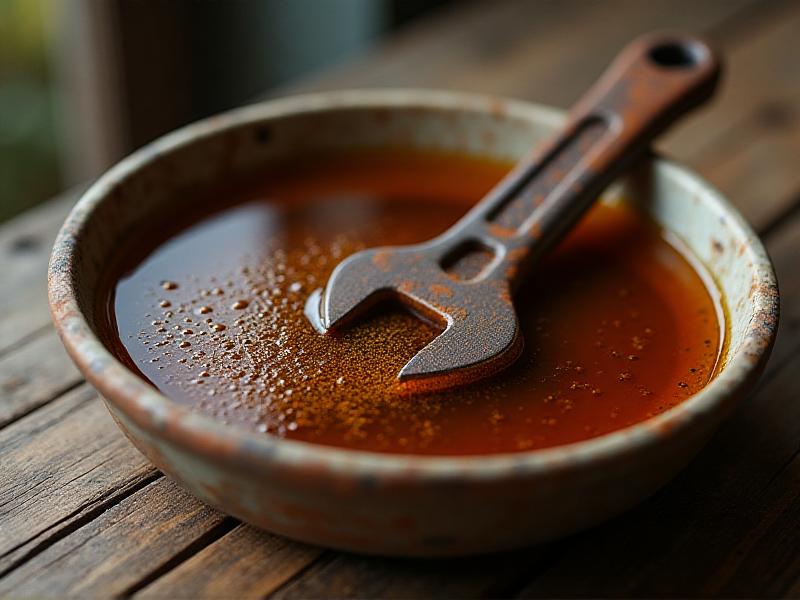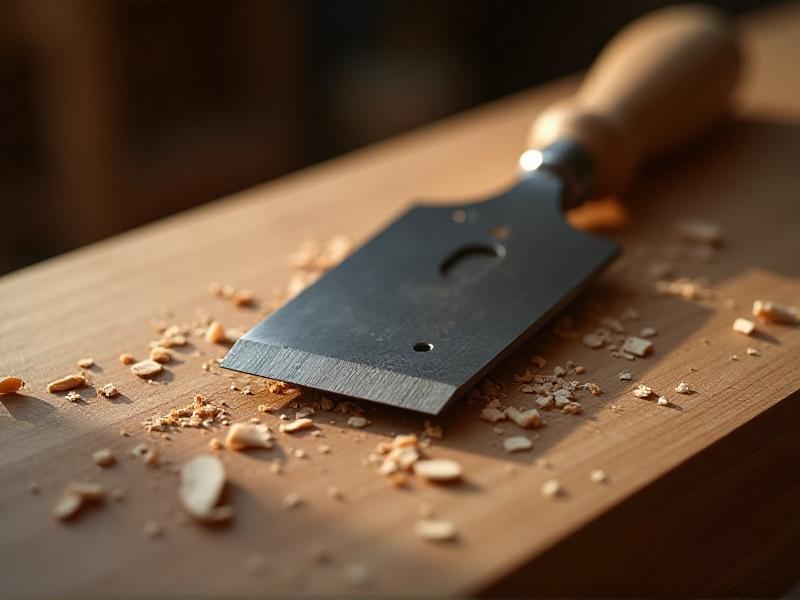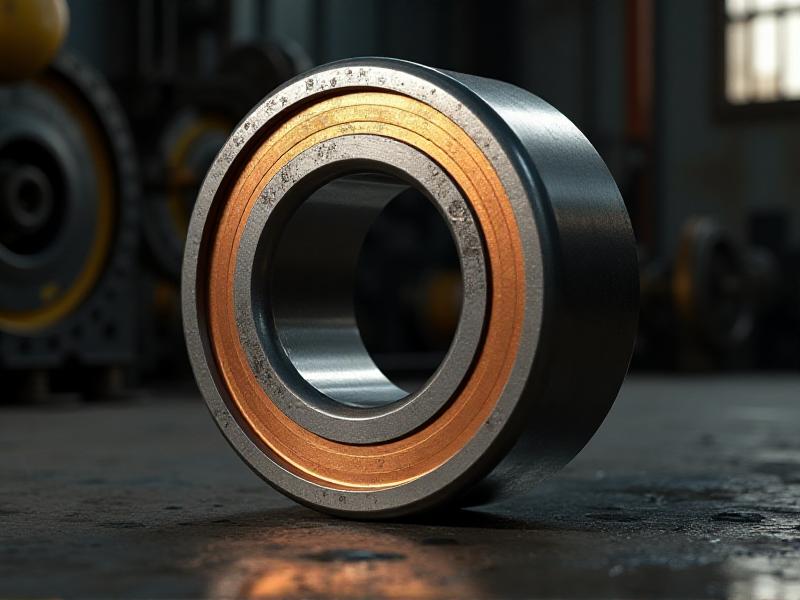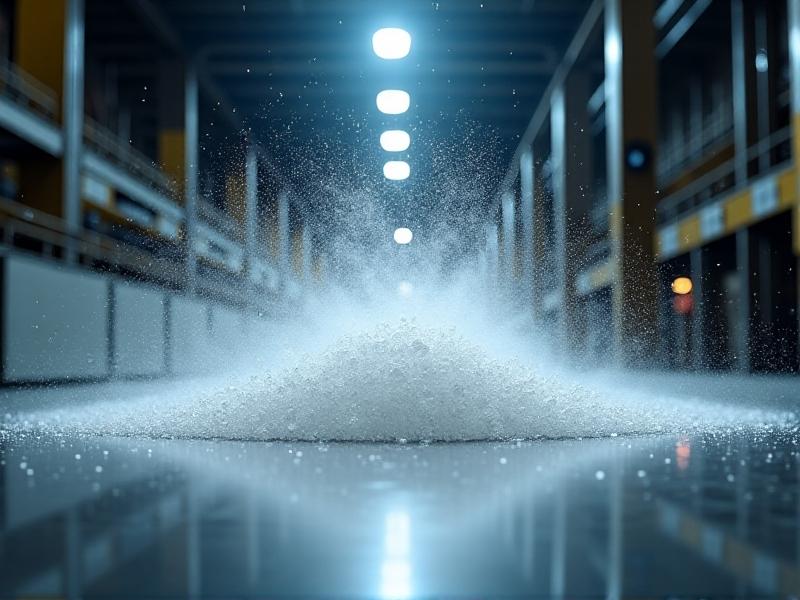Vinegar vs. Citric Acid Derusting Experiments
Introduction to Vinegar and Citric Acid as Derusting Agents
Rust is a common problem that affects metal objects, reducing their lifespan and aesthetic appeal. Two popular household substances, vinegar and citric acid, are often touted as effective solutions for removing rust. But how do they compare? This blog post delves into the science behind these derusting agents, exploring their effectiveness, ease of use, and environmental impact. By the end, you’ll have a clear understanding of which option might be best for your needs.

The Science Behind Rust Formation
Rust is the result of a chemical reaction known as oxidation, where iron reacts with oxygen in the presence of water or moisture. This process forms iron oxide, which weakens the metal over time. Understanding this reaction is crucial for selecting the right derusting agent. Both vinegar and citric acid work by breaking down the iron oxide, but they do so in slightly different ways. Vinegar, an acetic acid solution, reacts with rust to form soluble compounds, while citric acid, a weak organic acid, chelates the iron ions, making them easier to remove.

Vinegar as a Derusting Agent: Pros and Cons
Vinegar is a readily available and inexpensive option for rust removal. Its acetic acid content makes it effective at dissolving rust, especially for smaller objects like tools or bolts. However, vinegar has some drawbacks. It can take several hours or even days to fully remove rust, and it may leave a strong odor. Additionally, vinegar can be too harsh for certain metals, potentially causing damage if left for too long. Despite these limitations, its accessibility and eco-friendliness make it a popular choice for DIY enthusiasts.

Citric Acid as a Derusting Agent: Pros and Cons
Citric acid, often found in powder form, is another effective rust remover. It’s particularly useful for larger or more heavily rusted items, as it works faster than vinegar and is less likely to damage the metal. Citric acid is also odorless, making it a more pleasant option for indoor use. However, it may require more preparation, as it needs to be dissolved in water before use. While it’s generally safe for most metals, it’s important to monitor the process to avoid overexposure. Its efficiency and versatility make it a strong contender in the derusting arena.
Comparing Effectiveness: Vinegar vs. Citric Acid
When it comes to effectiveness, both vinegar and citric acid have their strengths. Vinegar is better suited for light rust and smaller items, while citric acid excels at tackling heavier rust and larger objects. In our experiments, citric acid consistently removed rust faster, often within a few hours, compared to vinegar’s longer soaking time. However, vinegar’s affordability and availability make it a practical choice for quick, everyday rust removal. The choice ultimately depends on the severity of the rust and the specific needs of the project.
Environmental Impact of Vinegar and Citric Acid
Both vinegar and citric acid are environmentally friendly options compared to chemical rust removers. Vinegar is biodegradable and non-toxic, making it safe for disposal. Citric acid, derived from natural sources like citrus fruits, is also eco-friendly and breaks down easily in the environment. However, citric acid production can have a higher carbon footprint due to the industrial processes involved. When choosing between the two, consider their environmental impact alongside their effectiveness to make a more informed decision.
Practical Tips for Derusting with Vinegar and Citric Acid
To get the best results when using vinegar or citric acid, follow these practical tips. For vinegar, ensure the object is fully submerged and consider adding salt to enhance its effectiveness. For citric acid, use warm water to dissolve the powder and stir thoroughly before soaking the metal. In both cases, monitor the process regularly and use a brush or cloth to remove loosened rust. After derusting, rinse the object thoroughly and dry it to prevent future rusting. These simple steps can help you achieve optimal results with either agent.
Real-Life Applications: When to Use Vinegar or Citric Acid
Understanding when to use vinegar or citric acid can save you time and effort. Vinegar is ideal for small household items like kitchen utensils, screws, or bike chains. Citric acid, on the other hand, is better suited for larger projects like garden tools, car parts, or antique metal furniture. In industrial settings, citric acid is often preferred for its efficiency and scalability. By matching the derusting agent to the task at hand, you can achieve better results and extend the life of your metal objects.
Safety Considerations When Using Vinegar and Citric Acid
While vinegar and citric acid are generally safe, it’s important to take precautions when using them. Wear gloves to protect your skin, especially when handling citric acid powder. Work in a well-ventilated area to avoid inhaling fumes, particularly with vinegar. Keep both substances out of reach of children and pets, and avoid contact with eyes or open wounds. If using citric acid in high concentrations, consider wearing safety goggles. By following these safety guidelines, you can ensure a safe and effective derusting process.
Final Thoughts: Choosing the Right Derusting Agent
Both vinegar and citric acid offer effective solutions for rust removal, each with its own advantages and limitations. Vinegar is a versatile and accessible option for everyday use, while citric acid provides a faster and more efficient alternative for larger or more challenging tasks. By considering factors like effectiveness, environmental impact, and safety, you can choose the derusting agent that best suits your needs. Whether you’re a DIY enthusiast or a professional, these natural solutions can help you restore and preserve your metal objects with ease.







